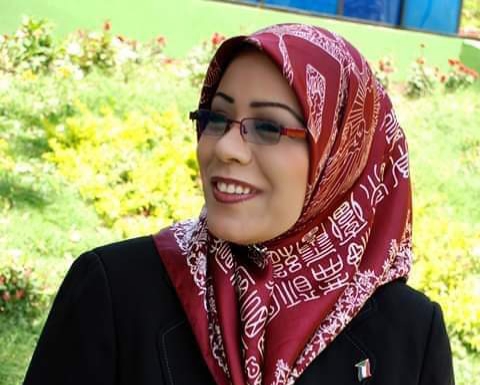Breaking is Not Sudanese

Dr. Enas Mohammed Ahmed
The world has known economic sanctions since ancient times. Governments and armies have often resorted to imposing various sanctions, including economic blockades, on nations and entities allied with their adversaries as a means of expansion, dominance, and influence.
International sanctions policies are typically designed to achieve overarching political outcomes within a specific period. These sanctions often target economic gateways, hindering a nation’s developmental plans by disrupting its balance and halting economic growth. Such measures usually have a profound impact on a nation’s economy, ultimately affecting its social and political stability in the long run.
Since the revocation of the U.S. General Embargo Act of 1807, the United States government has primarily focused on imposing economic sanctions on nations deemed a threat to U.S. foreign policy. The global community, recognizing the devastating impact of targeting national economies as a powerful weapon—sometimes more severe than military warfare—has grown reluctant to impose sanctions. However, the U.S. has increasingly relied on economic sanctions as a tool of foreign policy, establishing specialized mechanisms like the Office of Foreign Assets Control (OFAC) to enforce them.
This article examines the role of OFAC, how it imposes sanctions, and the types of sanctions enforced. OFAC is essentially a financial intelligence agency under the U.S. Department of the Treasury. It enforces economic and trade sanctions based on U.S. foreign policy and national security objectives. Targets include foreign governments, entities, and individuals involved in terrorism, international drug trafficking, proliferation of weapons of mass destruction, and other threats to U.S. interests. Operating under presidential emergency powers and specific legislative authorities, OFAC restricts transactions and freezes assets under U.S. jurisdiction. Established in 1950, its headquarters are in Washington, D.C.
There are various types of sanctions. Some target nations, prohibiting specific activities, and are dynamic, changing with political circumstances. Smart sanctions aim to counter threats to U.S. national interests. Sectoral sanctions target specific economic sectors, restricting business in certain industries. Secondary sanctions penalize those cooperating with primary violators.
Recently, the U.S. Department of the Treasury announced financial sanctions on General Abdel Fattah al-Burhan, Chairman of the Sovereign Council and Commander of the Armed Forces, coinciding with a statement by U.S. Secretary of State Antony Blinken (at the time) expressing regret over the failure to end the war in Sudan. Blinken expressed hope that President-elect Donald Trump’s administration would continue efforts to achieve peace in Sudan.
These sanctions followed U.S. accusations that the Rapid Support Forces (RSF) had committed genocide, war crimes, and crimes against humanity during the conflict. Sanctions were also imposed on RSF leaders and seven companies trading in arms and gold on behalf of the RSF.
A review of U.S.-Sudan relations reveals a long history of U.S. economic sanctions. These began in 1988 when Sudan defaulted on its accumulated debts. On August 12, 1993, the U.S. Department of State designated Sudan as a state sponsor of terrorism. In 1996, the U.S. Embassy in Khartoum ceased operations, signaling further measures.
On November 3, 1997, President Bill Clinton issued an executive order imposing financial and trade sanctions on Sudan, freezing its assets, banning U.S. technology exports, and prohibiting U.S. citizens from investing or engaging in economic cooperation with Sudan. In August 1998, the U.S. launched a missile attack on Sudan’s Al-Shifa pharmaceutical factory, claiming it produced materials for chemical weapons, a claim later debunked by international investigations.
In 2002, the U.S. enacted the “Sudan Peace Act,” linking sanctions to progress in peace negotiations with the Sudan People’s Liberation Movement.
In 2006, President George W. Bush froze the assets of 133 Sudanese entities and individuals. In November 2012, President Barack Obama renewed sanctions but eased them in February 2015, allowing U.S. companies to export personal devices and software enabling internet communication. In January 2017, the White House announced partial sanctions relief, citing Sudan’s progress, but kept the country on the list of state sponsors of terrorism.
Notably, U.S. reports, including a 2006 State Department report and a 2009 Congressional report, acknowledged Sudan’s cooperation in combating terrorism.
These sanctions, however, did not break the resilience of the Sudanese people. They rebuilt and developed the nation in all directions—north, south, east, and west. Roads, schools, universities, factories, hospitals, and agricultural projects flourished. Oil flowed from the earth, and Sudanese determination overcame international challenges.
Described by Sudan’s Ministry of Foreign Affairs as “desperate,” the Biden administration’s sanctions demonstrate a lack of understanding of the situation in Sudan. These measures, weak and symbolic, failed to reflect the complexity of the conflict.
The first reaction to these sanctions was an increase in support for General Burhan, with Sudanese citizens rallying behind him. These sanctions are personal, targeting individuals’ assets and financial dealings, unlike the comprehensive sanctions previously imposed on Sudan, rendering them insignificant.
It’s worth questioning whether the Biden administration sought to equalize warring parties, despite the stark difference between a legitimate national army commander safeguarding his country under the law and an outlawed militia committing atrocities, war crimes, and genocide.
Instead of targeting those killing civilians, recruiting child soldiers, and burying people alive, the Biden administration should have upheld international humanitarian law. It should have condemned attacks on civilian infrastructure, theft of humanitarian aid, and the smuggling of U.S.-made weapons under the guise of aid to fuel the conflict.
Regardless of these sanctions, Sudanese victories bring hope. The nation moves closer to reclaiming its unity, strength, and pride.
“We are God’s soldiers, defenders of the nation.” Breaking is not Sudanese and will never be.



